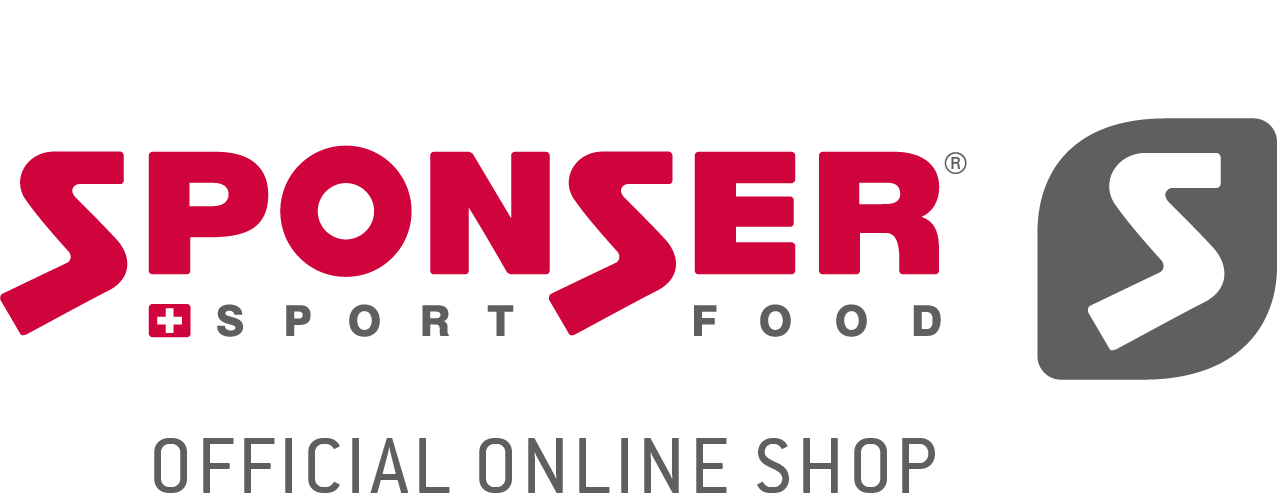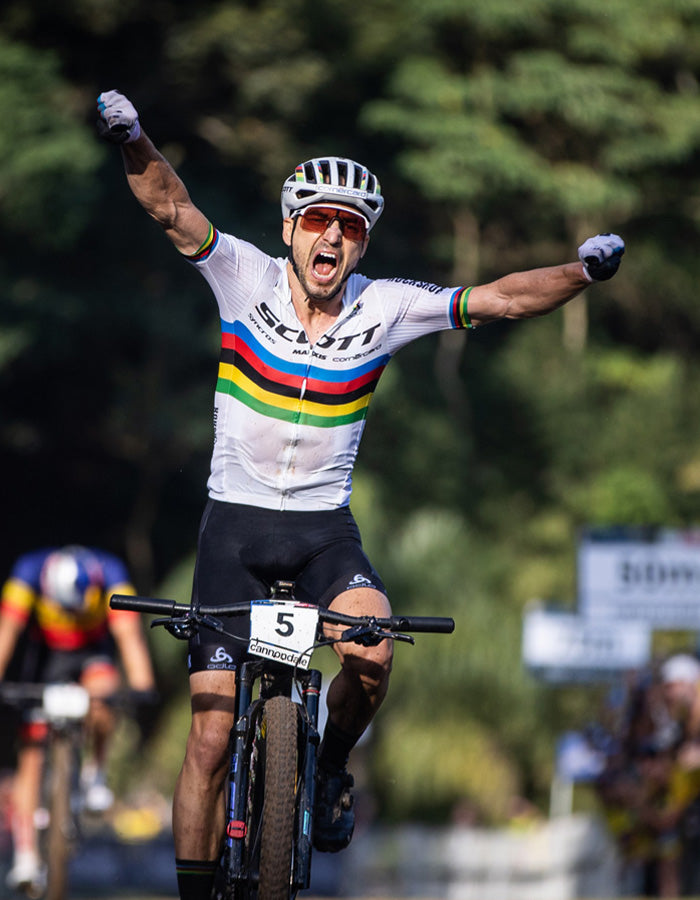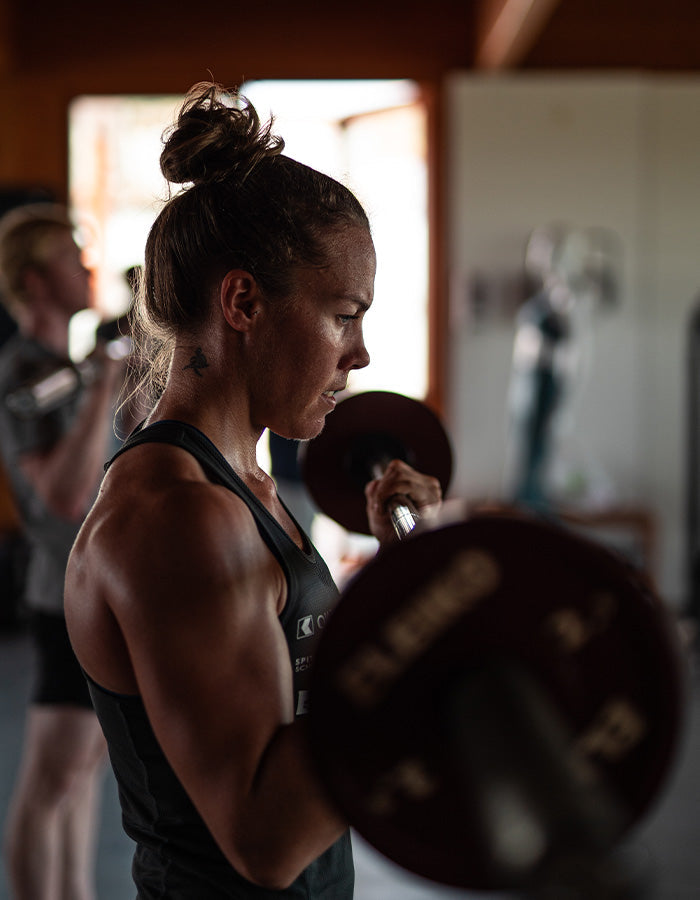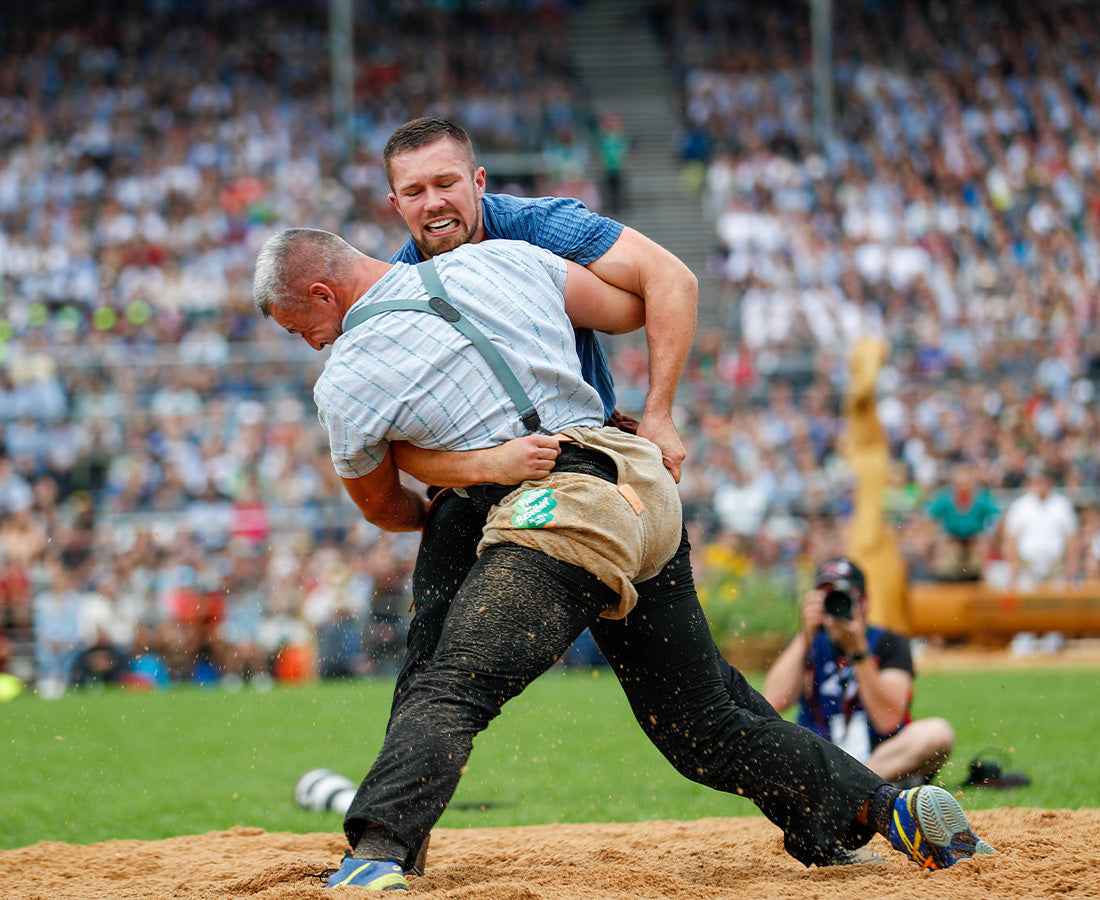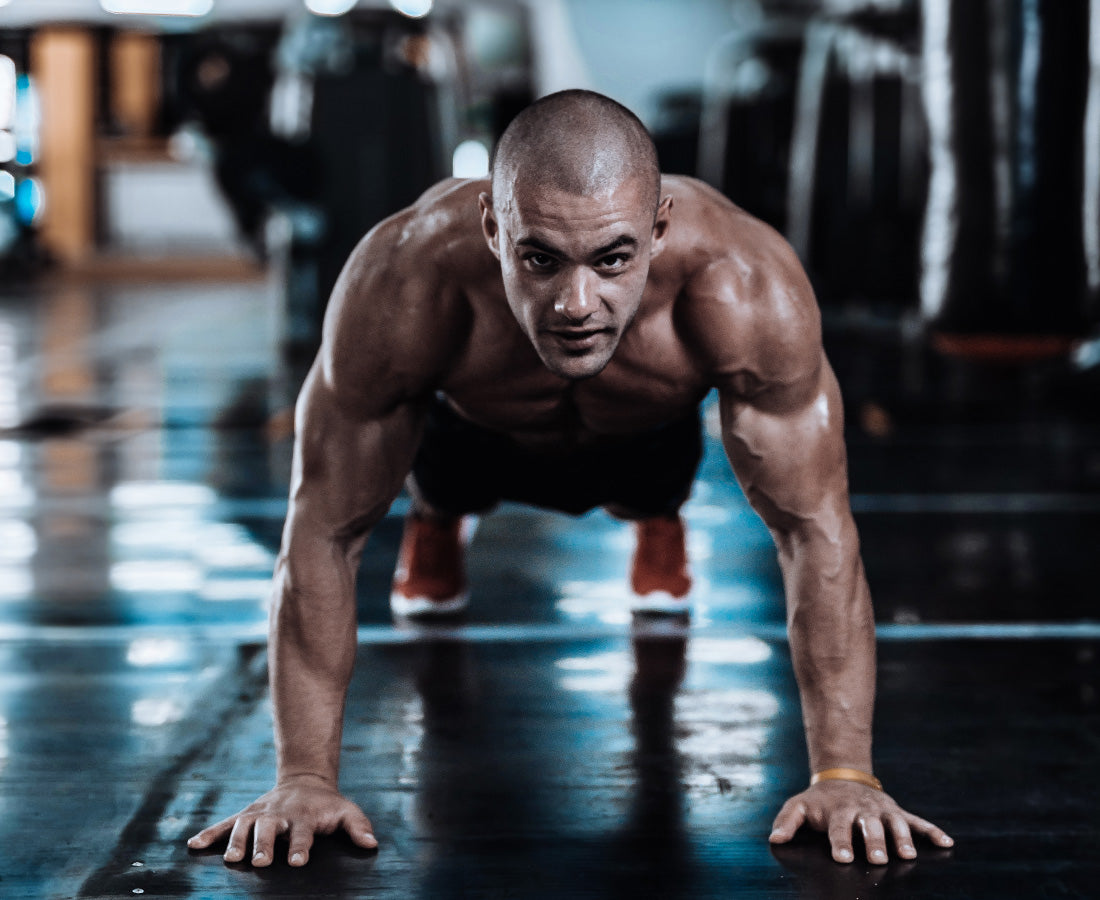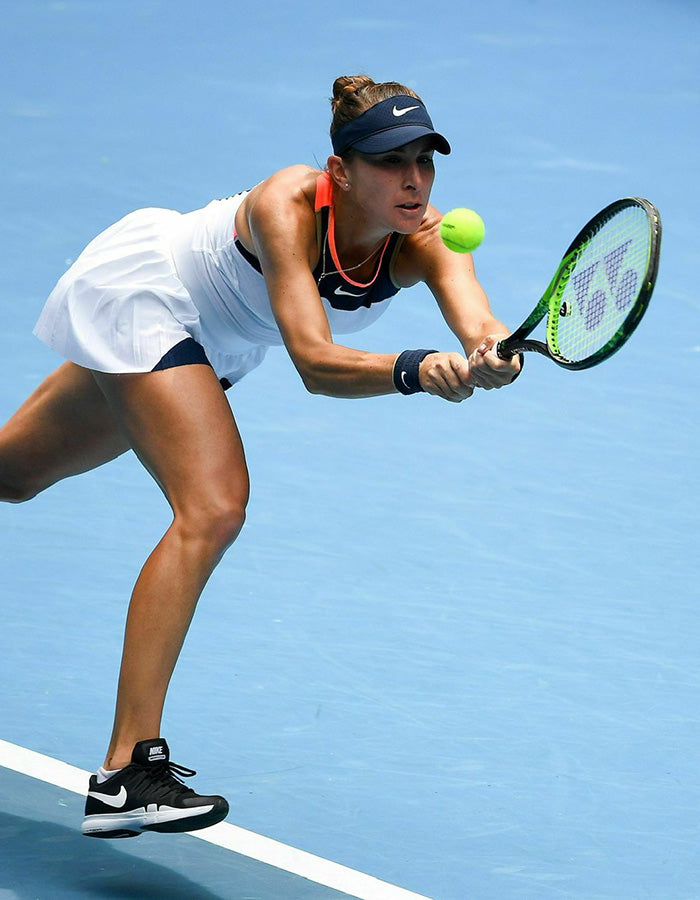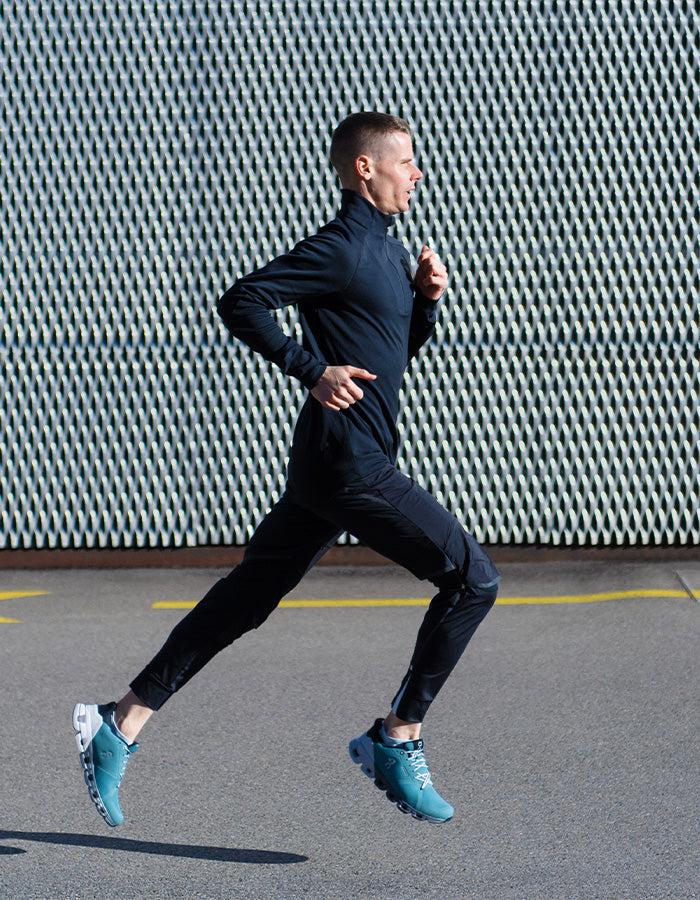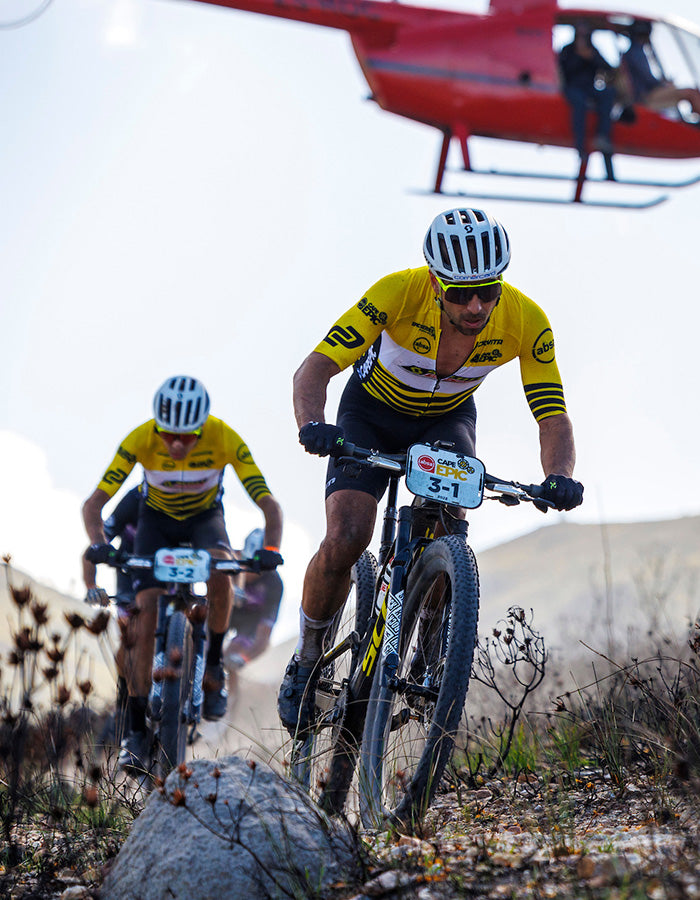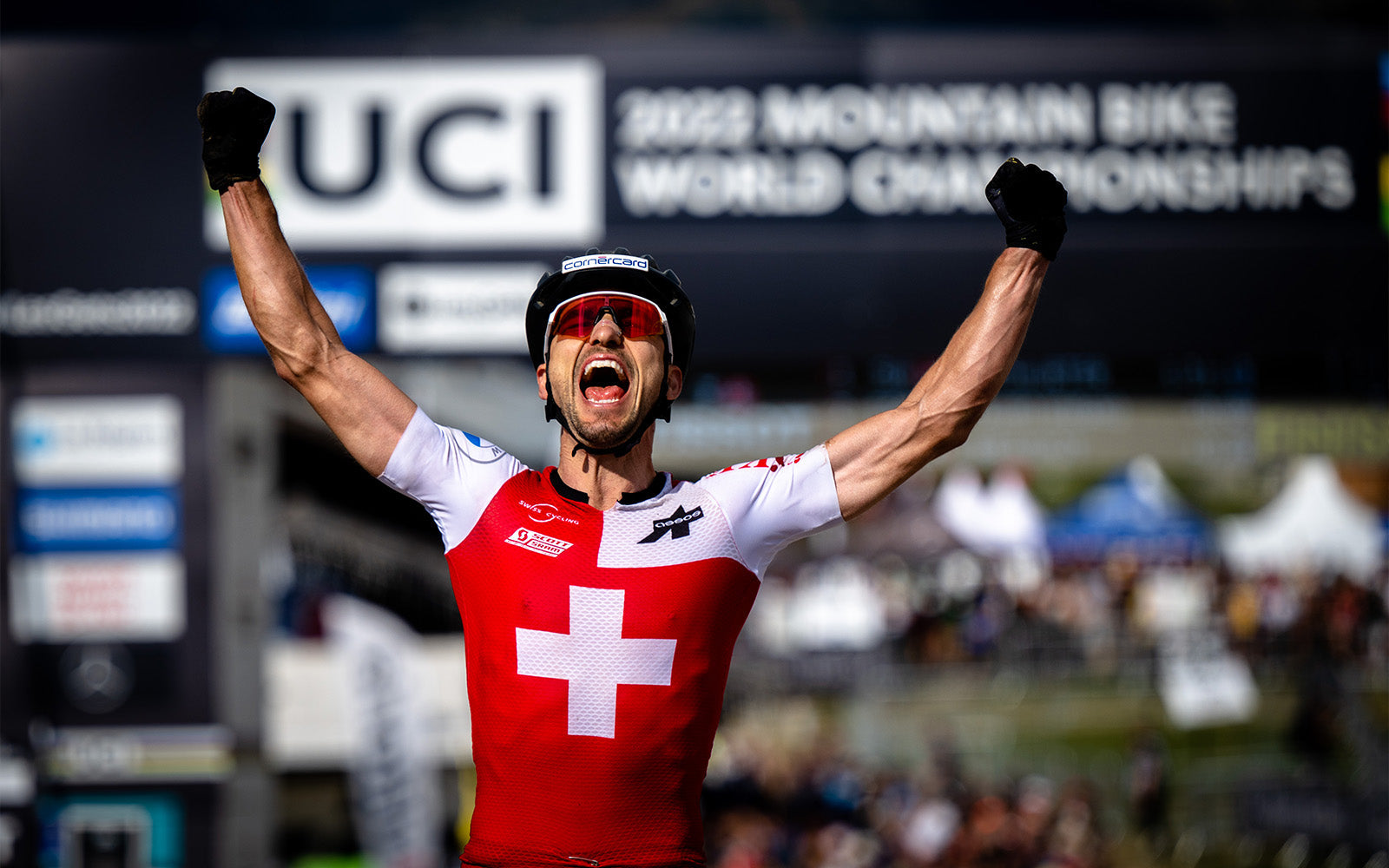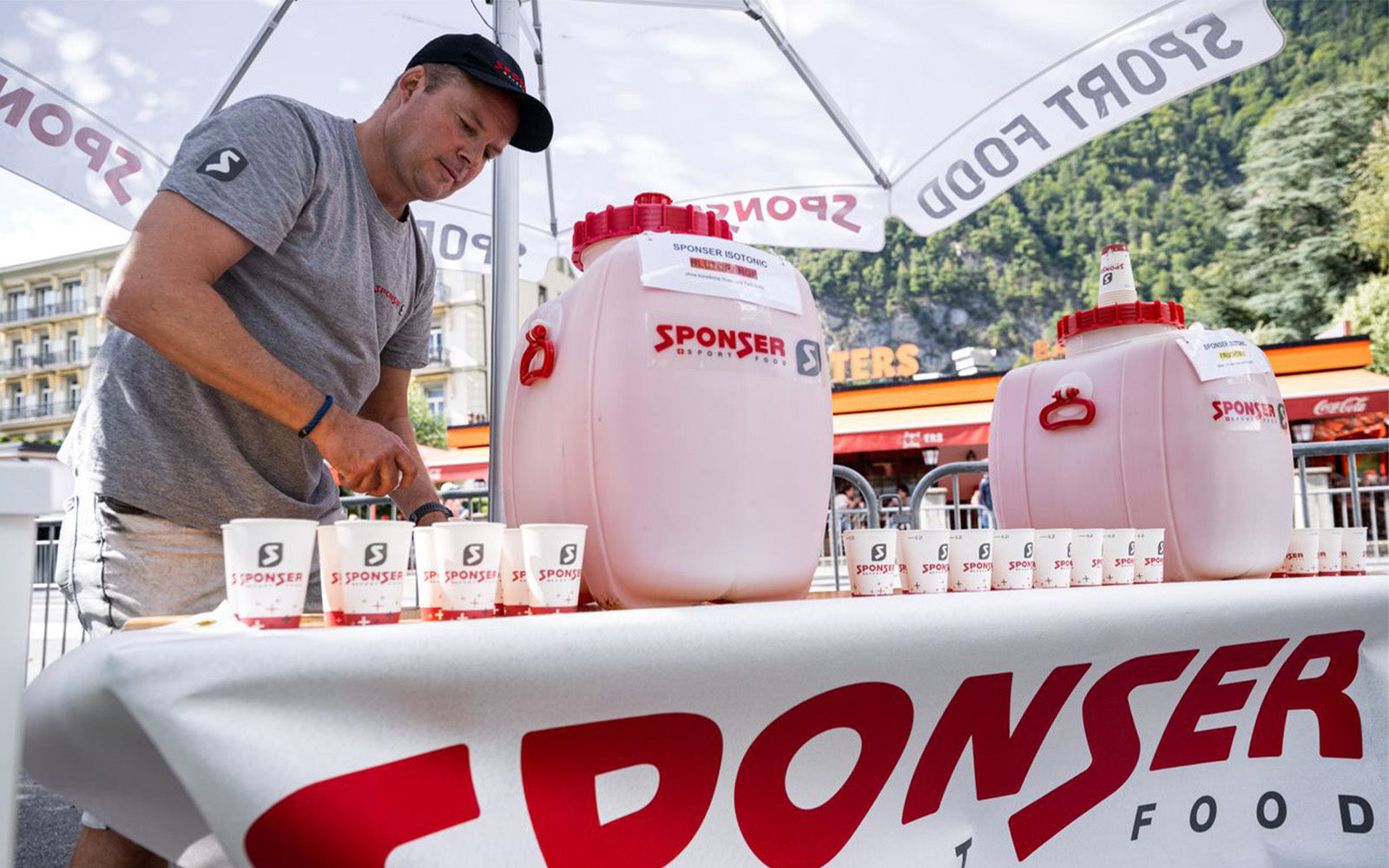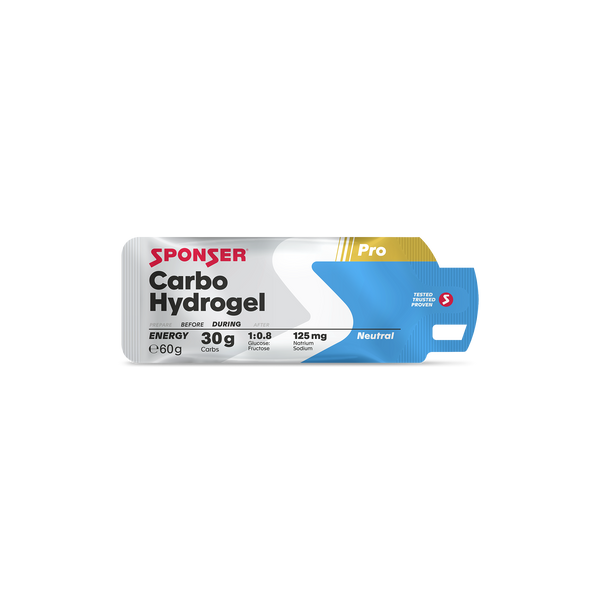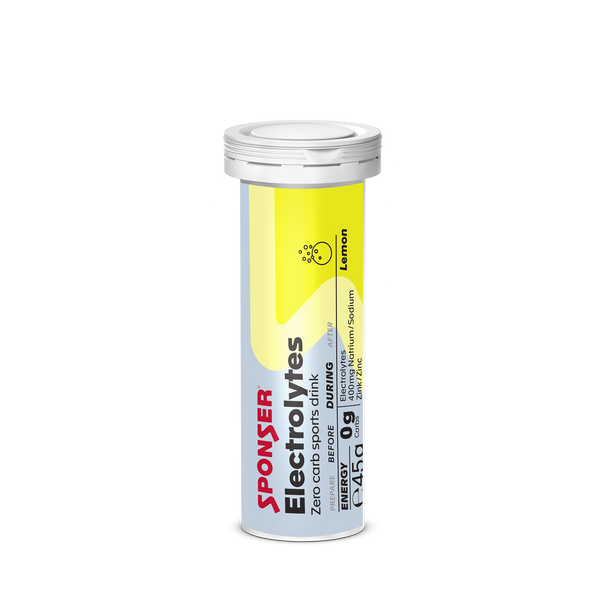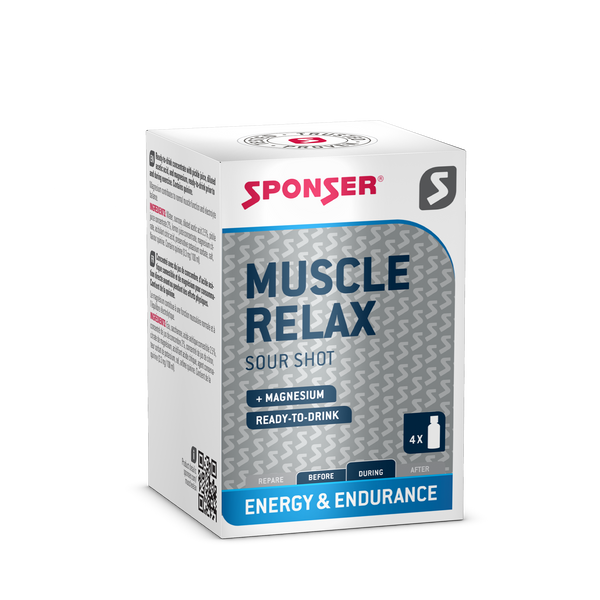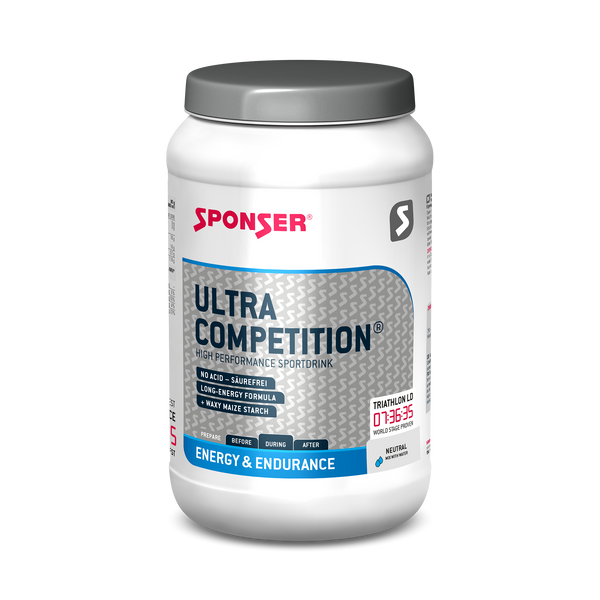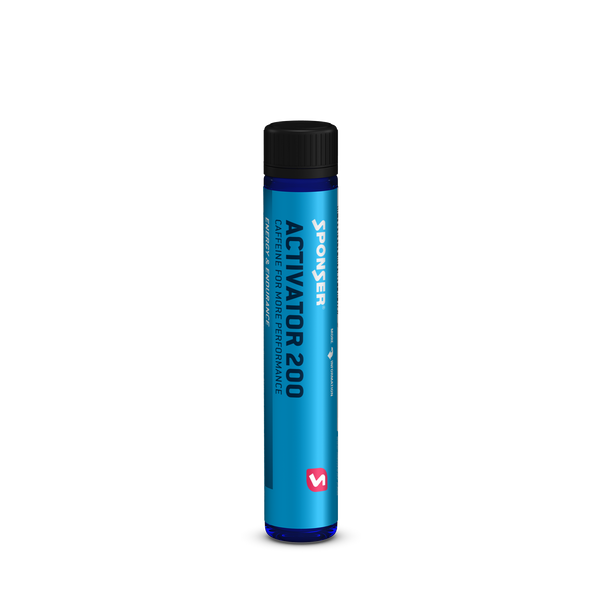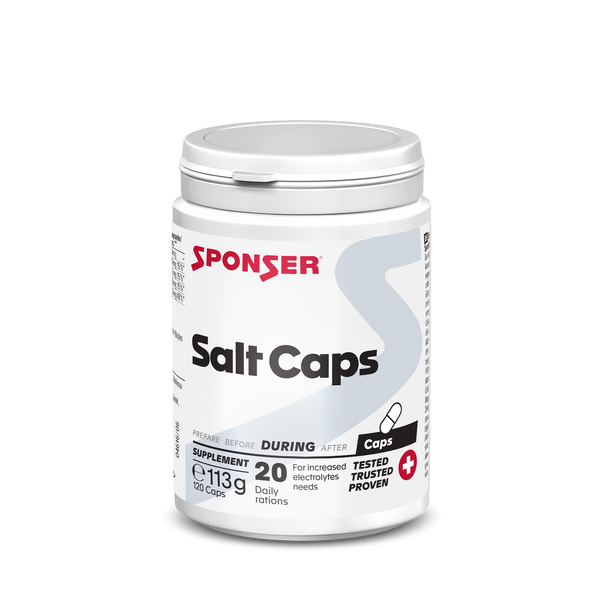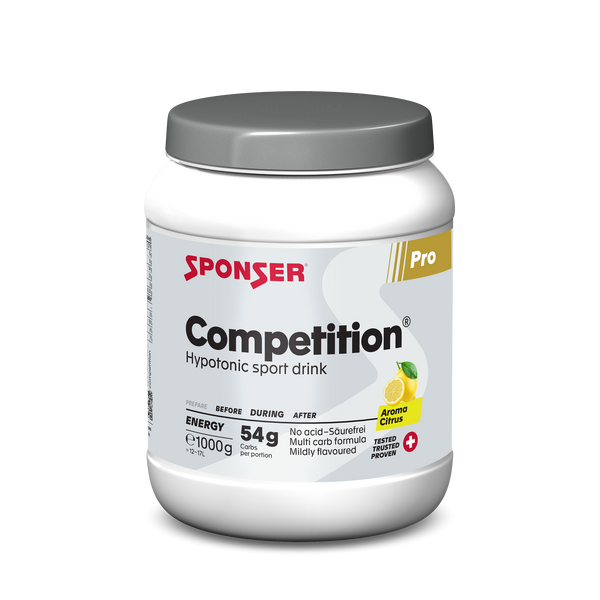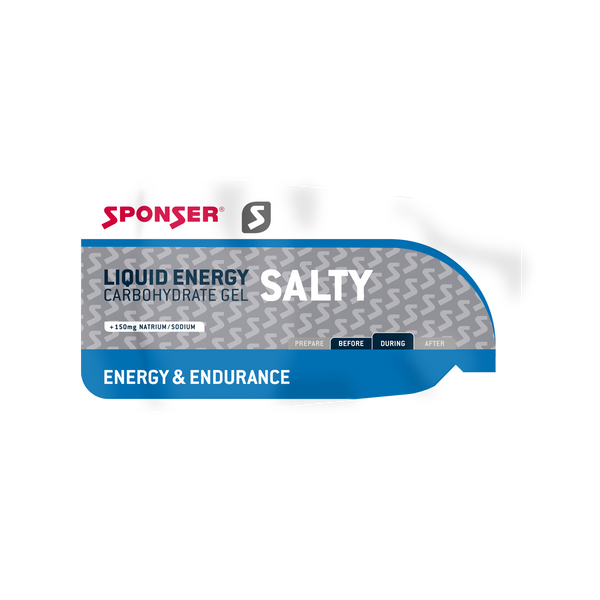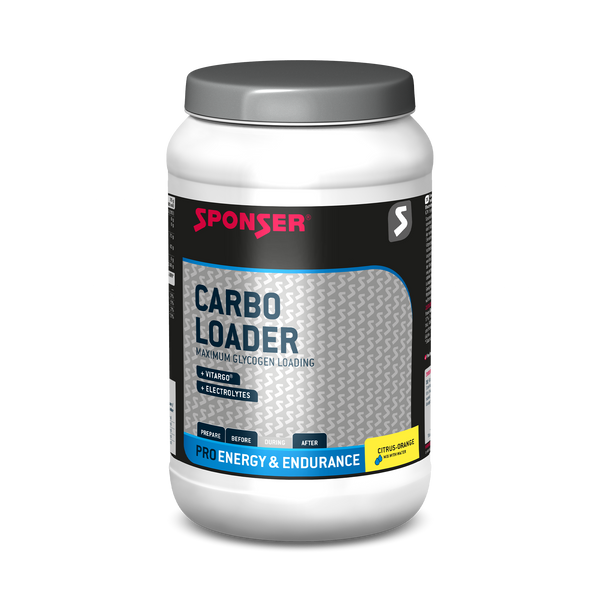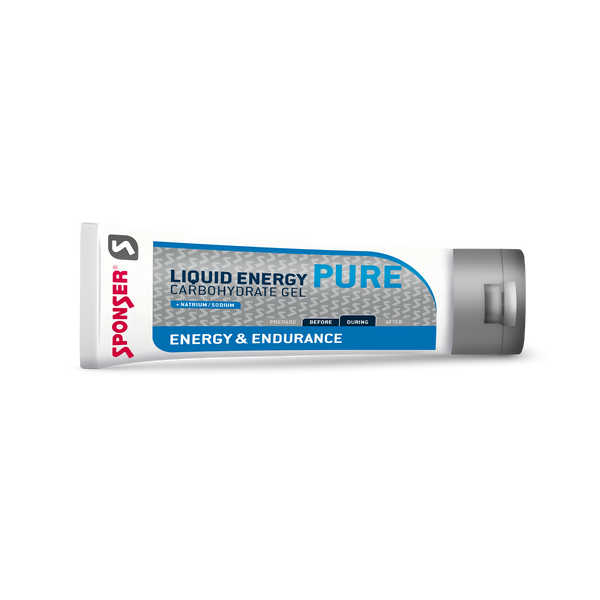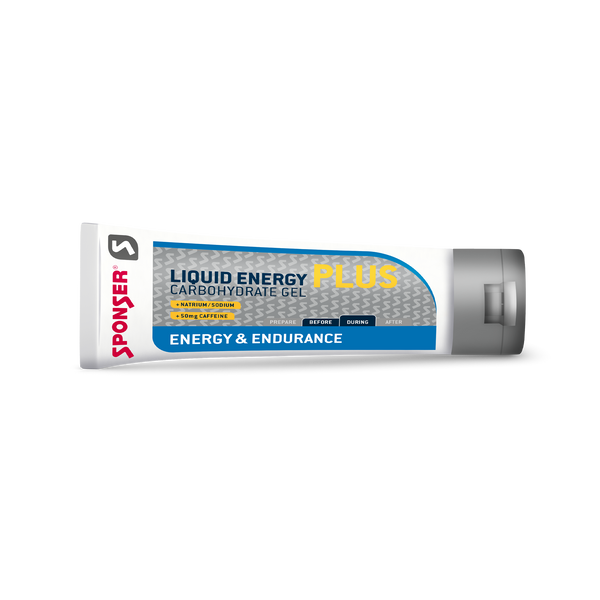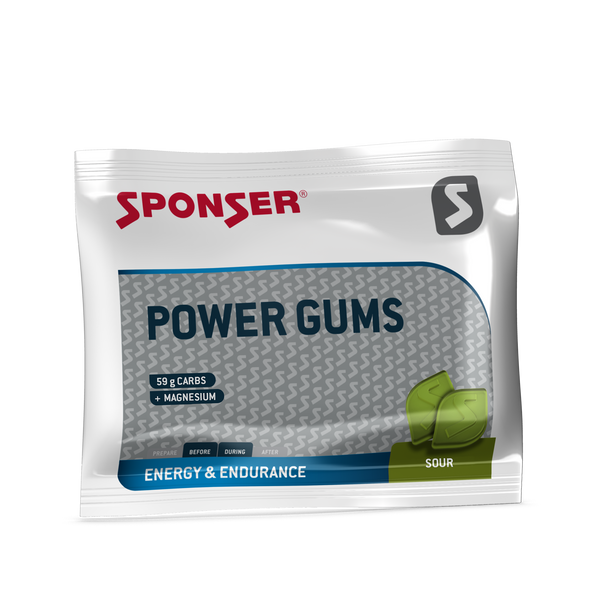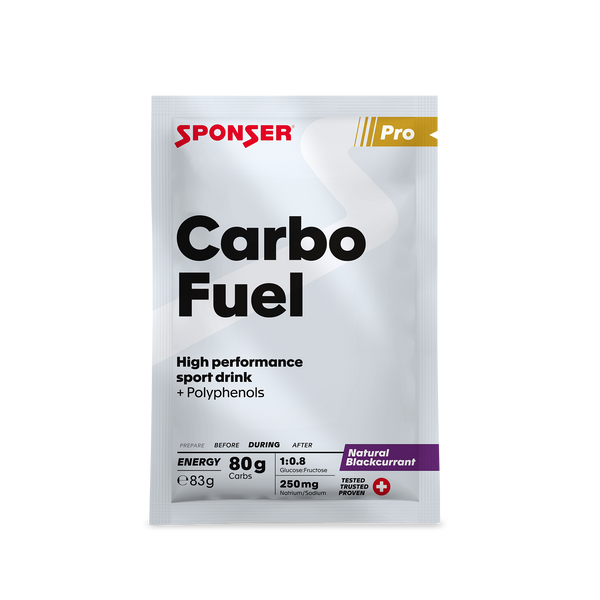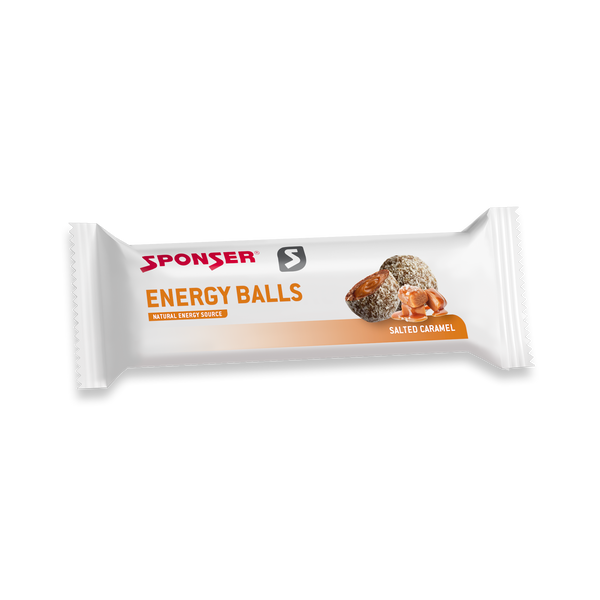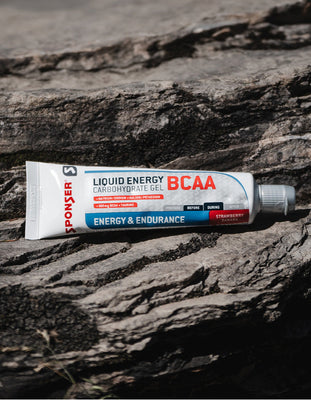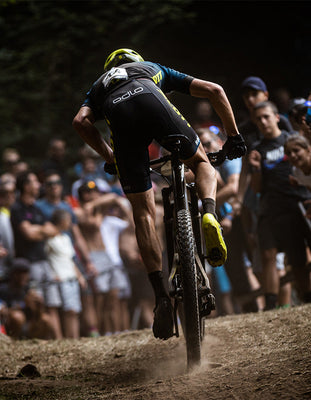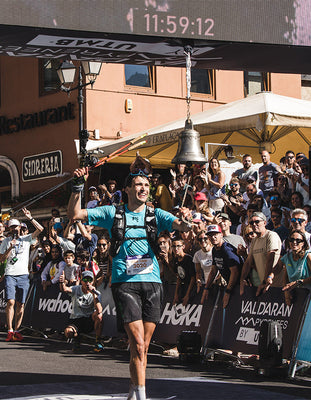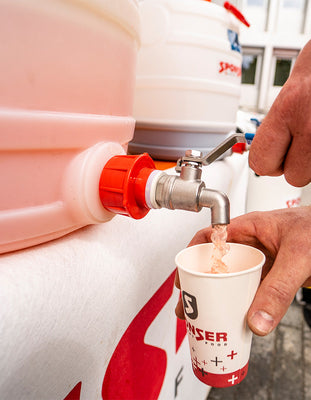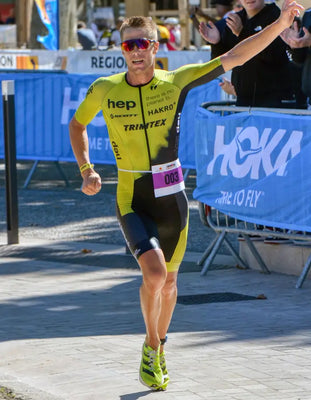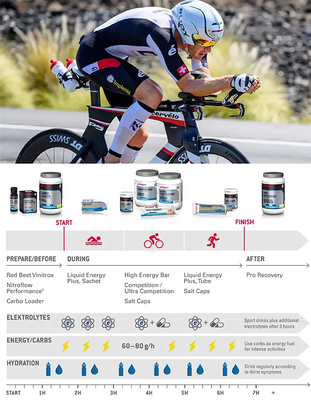
Photo credit: David Birri ZVG Jungfrau-Marathon
Every detail counts when it comes to race nutrition!
For the Jungfrau-Marathon a well-trained body and a mentally strong head are undoubtedly necessary if you want to be successful over the distance of 42.2 km with 1830 m altitude. At least as important for the success of the competition is the nutrition strategy. Those who eat and drink too little on the way up risk starvation and a loss of performance - and in the worst case they cannot fully enjoy the beautiful route from Lauterbrunnen to Kleine Scheidegg through the impressive mountain world. The following points should be considered when it comes to nutrition at the Jungfrau-Marathon:
BEFORE THE RACE
Carboloading
The longer the race, the more important become the carbohydrate reserves and the intake capacity of your body. Marathon runners benefit from carboloading, which means: filling the body's various carbohydrate stores to the maximum. Studies suggest that carboloading for one to two days before the race is the most effective. In addition to a generally higher carbohydrate intake immediately before the competition, we recommend taking our specially developed CARBO LOADER on the day before the competition. CARBO LOADER is a highly concentrated carbohydrate drink without free fructose. It fills up the glycogen stores to the max and leaves no feeling of fullness or flatulence.
Electrolytes
The electrolyte level in your body should be balanced before the start of a marathon. A little extra salt in your last meals before the start will do you good. Ideally, you should also take one or two salt capsules (SALT CAPS) or dissolve ELECTROLYTE TABS in a water bottle.
Breakfast and last hour before the gun goes off
Eat your last meal preferably around 3-4 hours before the start of the competition. The food should be easy to digest (as little fibre as possible!) and rich in carbohydrates. Moreover, try to drink regularly (but not excessively) until the start of the race. Ideally not only water, as this does not contain electrolytes. Take half a tube of LIQUID ENERGY GEL with some water about 5-10 minutes before the start.
DURING THE COMPETITION
The nutrition strategy before and during a long run is a very individual matter. Nevertheless, there are some guidelines to follow in order to reach the finish line in the best possible way:
Energy
For all endurance sports, carbohydrates are the main source of energy. However, their absorption capacity is physiologically limited. As a rule, consume between 60-80 g of carbohydrates per hour or about 1 g of carbohydrates per kg of body weight. Basically, it does not matter whether the energy intake comes from sports drinks or gels. The ideal intake interval is 15-20 minutes. If you consume too much energy, it can end in flatulence or stomach problems.
» read more in the article Energy Gels and Carbohydrate Intake
Liquids and electrolytes
Sweat not only causes a loss of fluid, but also a loss of electrolytes. It is therefore important to drink regularly right from the start and to pay attention to the feeling of thirst, which, according to scientific findings, is the most reliable indicator. For nutritional reasons, we recommend taking carbohydrate-electrolyte drinks such as COMPETITION, CARBO FUEL, LONG ENERGY and ULTRA COMPETITION. The advantage: These sports drinks provide the body with valuable electrolytes, fluids and, of course, energy in hypotonic form. Moreover, the drinks are acid-free, provide a broad carbohydrate spectrum and come with a very soft flavour, which makes them optimally digestible.
The first 25 km on the Jungfrau-Marathon course only rise slightly and therefore allow a quite fast running speed. However, in order not to suffer a slump on the challenging second section of the course, when it climbs steeply, it is necessary to eat regularly from the start. The sports drinks from the Swiss sports nutrition company SPONSER, which are served at the refreshment stands, provide valuable liquid energy and electrolytes. Since they are acid-free and mildly flavoured, they do not strain the stomach and do not acidify even during high exertion. If you do not run at the absolute limit, take a few sips from the start of every meal and strengthen yourself with a bite of banana or sports bar.
At the latest from kilometer 20 it helps to supply highly concentrated energy in the form of LIQUID ENERGY GELS (available from SPONSER in a salty version as well as sweet with caffeine) or CARBO HYDROGEL (without the need to drink water afterwards) in addition to sports drinks. Finally, the Pièce de Résistance is still ahead of you at the Jungfrau-Marathon. In order to complete the challenging metres of altitude without break-ins, it is best to go to any refreshment stand and treat yourself to a bouillon, a LIQUID ENERGY SALTY gel, ENERGY BALLS Salted Caramel or a bite of the famous HIGH ENERGY BAR Salty-Nuts bar, depending on your individual taste for salt. Many runners swear by cola at the end of each marathon. There's nothing wrong with that as long as you know that you can tolerate the carbonic acid well even under stress.
Prevent muscle cramps
If you are prone to cramps, you might love the MUSCLE RELAX shot. The sour-hot drink solution activates neurosensory receptors and helps normalise your muscle function in the case of a cramp during the race.
Caffeine as a booster
Many studies have already proven the positive effect of caffeine in competition. In most cases, the focus was on a performance duration of one hour. However, caffeine can also noticeably improve longer endurance performances.
No experiments in competition!
We recommend that you test all products you plan to use in your competition well in advance during training under competition-like situations. There are always individual factors you need to take into account. Many an elite athlete has had to pay dearly in this respect. Rule number one is therefore: No nutritional experiments on the day of the competition or immediately before the race!
AFTER THE COMPETITION
Fast regeneration pays off
The regeneration phase begins directly after the finish line. The faster, the better for the body, even though there is usually no feeling of hunger at this point. This means replenishing glycogen stores with easily digestible carbohydrates, supplying fluids or electrolytes and initiating muscle repair with protein. Elite athletes preferably consume a pro regeneration drink with approx. 20-30 g of protein within 30 minutes after crossing the finish line in order to cover all the important elements as simply and efficiently as possible. Use PRO RECOVERY, RECOVERY SHAKE or WHEY ISOLATE 94 or even RECOVERY DRINK (paired with an ampoule of AMINO 12500) in order to recover quickly.
» download nutrition plan Jungfrau-Marathon
